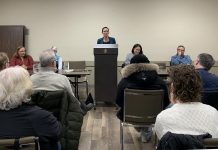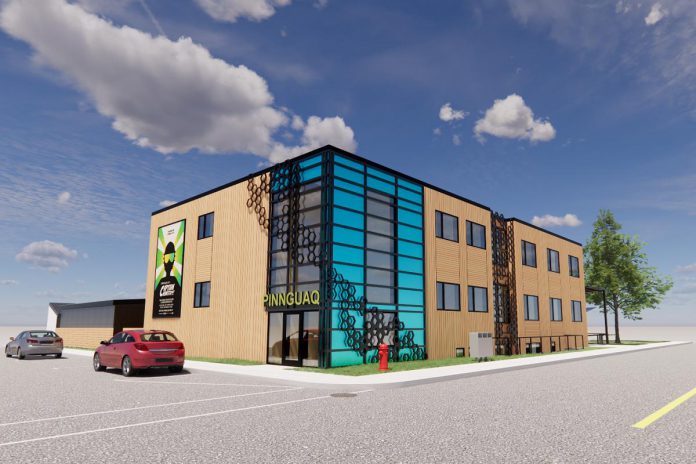
Paving the future is a lot more about the educators than it is about the place you do it, and yet a new state-of-the-art facility sure wouldn’t hurt.
That’s why the Pinnguaq Association is excited to have reached a milestone on their long journey to transforming the former Lindsay Public Works building at 12 Peel Street into a world-class community hub and STEAM (science, technology, engineering, arts, and mathematics) education facility.
While the interior construction has been moving along since March, the external renovations began earlier this month with the removal of the ramp on the building’s west side, to be replaced with an accessible entrance on the north end.
The 13,500-square-foot three-storey building will support the not-for-profit organization’s mission of advancing STEAM skills in rural, remote, and Indigenous communities by providing more space to use and create with Pinnguaq’s innovative technology.
Providing education, mentorship, and entrepreneurship opportunity in digital literacy for all ages, Pinnguaq — the Inuktitut word for “play” is pronounced “ping-gwah” — has supported the opening of seven makerspaces in Ontario and Nunavut, including one in Curve Lake First Nation and the current Lindsay location at 87 Adelaide Street, which opened in October 2019.
“The day we opened it, we knew we were too big (for the space) but there just wasn’t any other option,” says Pinnguaq CEO and founder Ryan Oliver, adding that each location offers something unique. “Those spaces need to reflect the value and cultures of their communities, and that’s how they’re going to be most useful to them.”
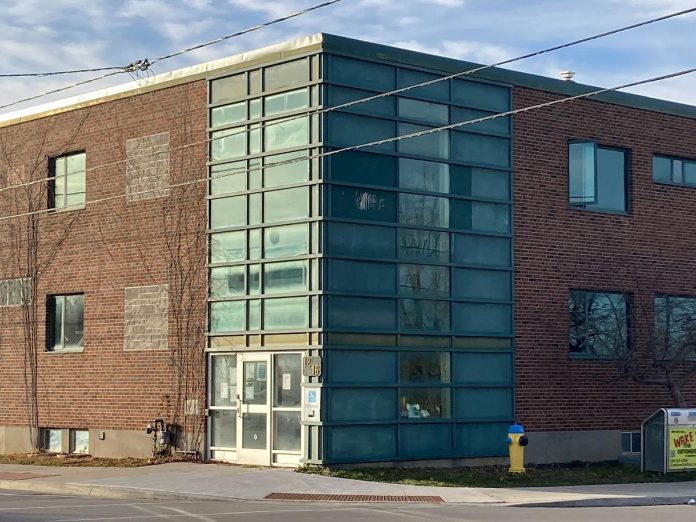
While the current location has 650 square feet open to the public, the Peel Street location will be almost seven times bigger with 4,500 square feet of community space to welcome school groups, families, and community organizations.
The building will include three makerspaces purposefully built to support neuro-divergent learners, with a collapsible glass wall between two of the rooms for access to a larger space through merger when required.
“It’s not like a makerspace (in a larger city) with unsupervised access to 3D printers, T-shirt makers, et cetera,” says Oliver, noting that the same goes for all of the organization’s makerspaces. “It’s more about pairing that piece with the educational opportunities and mentorship opportunities to learn to use it in the best way that ultimately benefits the community.”
Outside of the makerspaces, the Pinnguaq team works with clients to develop apps, games, and websites through a model that brings youth into the makerspace to be involved in making their first game, design, song, or other experience. Offices for these teams, as well as a shared kitchen and studios for streaming, recording, and designing, will be located on the second and third floors of the new facility.
One of these programs is coming up in the existing Adelaide space, where youth will be able to hear from a Coboconk-based game developer who is soon launching a hockey-focused video game, and have the opportunity to test it.
“It’s going to do multiple things for us through that moment,” Oliver says. “It’s going to create a mentor for a group of kids that are going to have the chance to work on these products, and they will immediately be able to put themselves in the industry.”
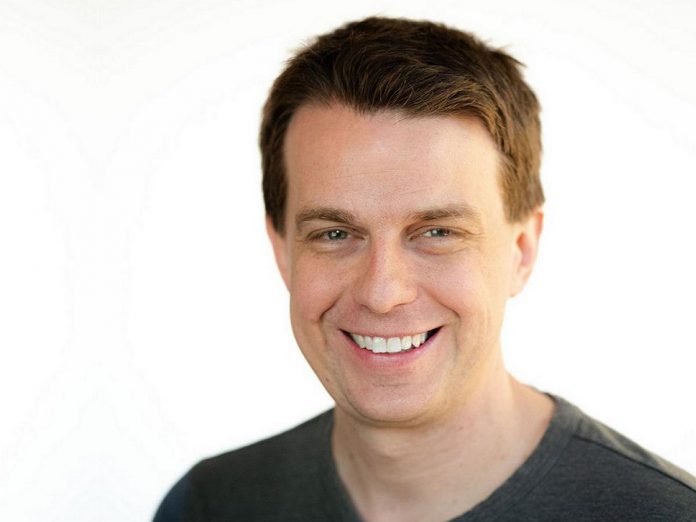
Originally from Lindsay himself, Oliver worked for almost nine years for the territorial government in Nunavut, where he founded the not-for-profit Pinnguaq Association in Pangnirtung in 2012 to provide Nunavummiut youth access to technology through games.
One of Canada’s first Arctic startups, the organization has since expanded with the goal, according to Oliver, to “level the playing field” and ensure “opportunities that are going to shape the future — in work, expressions or arts, and the way we communicate — are available to people regardless of the community we come from.”
A student of the late Rob Mathers, who taught at I.E. Weldon Secondary School in Lindsay for 24 years, Oliver was introduced to a unique approach of using technology while attending the school during the late 1990s.
“His whole approach to teaching computers was that we’re just going to break stuff and figure it out together,” Oliver recalls. “I think that’s what technology can be and that’s what makes it exciting.”
The Pinnguaq CEO adds that, even back then, it was about using technology beyond as a means of consumerism, not teaching people how to buy products online but to provide courses that support people on their way to starting their own online storefronts.
“We’re not looking at this as what can technology do for the community, but more at what this community can do with this technology,” Oliver says. “What we are trying to do is help people turn from consumers with technology into creators with technology.”
The new Peel Street facility will also encourage youth to see a career path for themselves in STEAM through a Hall of Fame for those hailing from the region who have found success.
“If you go to the recreation centre in Lindsay, every year you see the sports stars of yesteryear who came from this area,” Oliver says. “It’s inspiring to hockey players, for example, to know there’s so many people that have made the NHL from this area — so we want to create the same thing (for) technology.”
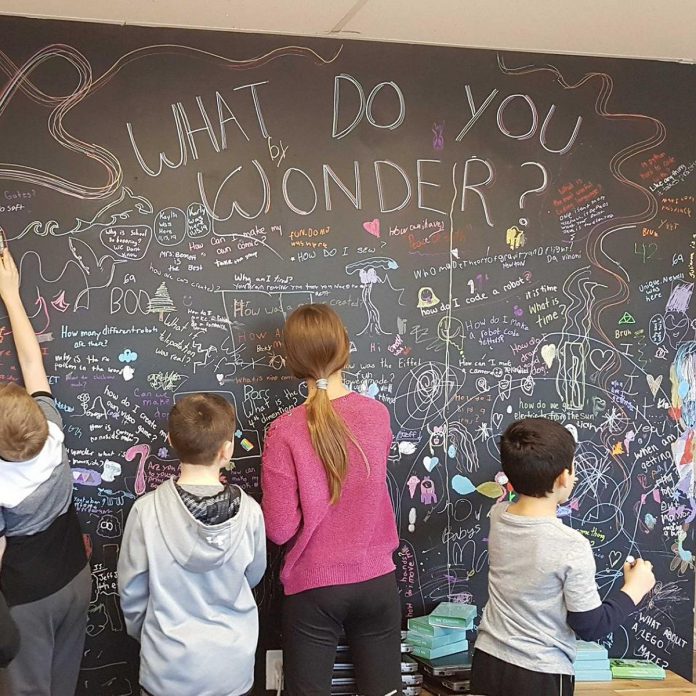
The aim is also for the Hall of Fame to help youth envision that they don’t have to go to downtown Toronto or Silicon Valley to work in any sort of tech industry.
To share that local pride even more, Pinnguaq is working with Downeyville and Lindsay-based contractors O’Neil and Carroll and Fenelon Falls-based design firm Home by Tim + Chris to create the new facility.
“In the same way that we’re trying to build capacity in rural communities — so that the funding can stay there and the money we receive can stay there — it’s really important that when you’re building space in a community, you do so in a way that keeps the community involved,” says Oliver. “If we want this place to ultimately reflect our community and be comfortable for it, we need to make sure the community is the one designing it.”
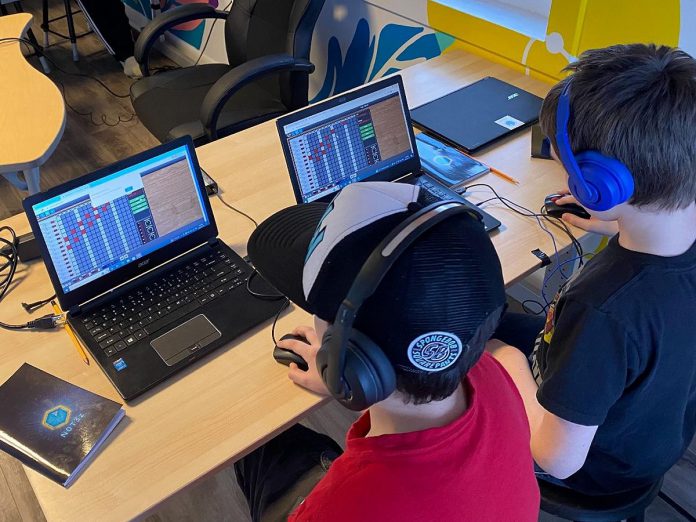
As they work towards completing the new building, with the aim of opening in early April 2024 at the latest, Oliver suggests the best way to show community support is to hire the Pinnguaq team for services like app or website development.
“The youth in the makerspace, they’re going to get an education out of it and get to work with their first client and get to get their name on their first game,” says Oliver. “But our talented team of designers are going to make sure that the finished result is better than or as good as any agency can put together. Running that agency is really where we’re able to support the organization, while also contributing directly into the community.”
For more information on Pinnguaq Association, visit pinnguaq.com.





